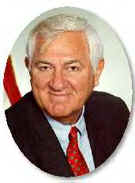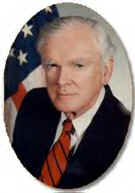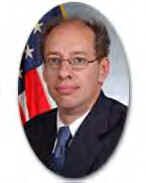TRAVEL LINES EXPRESS FRANCHISE COMPANY IS REGULATED BY THE FEDERAL TRADE COMMISSION IN WASHINGTON DC
Deborah Platt Majoras, FTC Chairman

FTC COMMISSIONERS
Orson Swindle Thomas Leary Pamela Harbour Jon Leibowitz




INSTANT TRAVEL AGENT
Professional
travel agents are essential for the efficient marketing of air transportation,
both domestic and foreign, cruises, hotel accommodations, tour packages, travel
insurance and much, much more. Travel agents, of which there are currently more
than 100,000 in the United States, have a special relationship with consumers.
Professionalism and consumer reliance have created a special relationship
between consumer and travel agent. Today's travel agent is the consumer's agent
and a fiduciary with legal duties and responsibilities.
Travel agents are held to a high standard of care and are relied upon by
consumers. Travel agents are best viewed as information specialists upon whom
consumers rely for the provision of accurate information and the confirmation of
travel arrangements. The contemporary travel agent is a professional, holds
himself out as a travel expert and is relied upon much like other information
specialists and professionals such as attorneys, doctors and accountants.
A recent study revealed that travel agents are relied upon by consumers in
purchasing travel services from specific suppliers and tour operators, airlines
(75%), vacation package tours (80%), hotels (70%), cruises (90%), destinations
(85%) and car rentals (70%).
Instant
Travel Agents
Instant travel agents are non-professionals who purchase travel agent
credentials. Travel agent ID cards along with some training are sold by
different companies for prices ranging from $199.00
to $7,995.00.
Some of these companies are involved in illegal pyramid schemes, educational
frauds, violating State security laws and State travel seller statutes.
The number of instant travel agents is staggering. In a recent study, it was
found that millions of travel agent identification cards were in the possession
of non-professional independent contractors.
Consumers
At Risk
Consumers are at risk from the unprofessionalism of instant travel agents. It is
analogous to persons being able to practice medicine or law after purchasing a
professional license for $199.00. The proliferation of instant travel agents
means that consumers may be dealing with poorly trained and unprofessional home
based travel agents. In addition, instant travel agents are unlikely to carry
errors and omissions insurance, fidelity and surety bonds which professional
travel agents often carry to protect themselves, suppliers and clients.
Professional
Travel Agents At Risk
The threat to professional travel agents is very real. Hundreds of thousands of
instant travel agents are taking away business without incurring the costs of
education, training, accreditation and bonding. More importantly, instant travel
agents through incompetence and fraud hurt the professional reputation of
serious travel agents. Widespread circulation of identification cards retards
the industry's struggle to make the public perceive travel agents as
professionals. It also dilutes the business with hordes of unqualified
do-it-yourselfers eager for a cut rate or other handouts from carriers and
hotels.
Travel agent organizations have been fighting back, with great success, by
encouraging State Attorney Generals and the Federal Trade Commission to
investigate the deceptive business practices of card mills.
Pyramid
Schemes
Some of the companies in the business of selling travel agent ID cards may be
illegal pyramid schemes. On the surface multilevel marketing companies recruit
non-professionals to retail products and services from their homes. In reality,
what is being sold is the opportunity to recruit new participants and earn a
commission from the new recruit's sales and future recruiting efforts. Such
schemes are inherently deceptive, misleading and illegal in many States.
State
Securities Laws
In Hawaii the State Department of Commerce and Consumer Affairs recently
completed an investigation of yet another travel multilevel marketing firm. This
educational program featured a $495.00 tutorial kit and the opportunity to sell
the kits to others and earn commissions of $100.00 per sale. Higher commissions
could be earned if investors purchased the tutorial kits in volume. This aspect
of the program constituted a security or investment program. The Consumer
Affairs Department found that this company violated state law by running an
investment program without registering under state securities law and ordered
full refunds to all Hawaii residents that had purchased the tutorial kits.
Subsequently a consumer class action was commenced charging another company with
unfair and deceptive practices and with operating an unlawful, endless chain
scheme claiming that purchasers of its credentials, can receive discounts and
upgrades on their own travel accommodations of the type generally available to
travel agents. But, in numerous instances purchasers cannot receive discounts
and upgrades on their own travel accommodations of the type generally available
to travel agents because the travel agent identification card is not recognized
by many travel industry service providers. According to the FTC, the company
represented, directly or by implication, that they provide purchasers with
sufficient training and support to open and operate a functioning at-home travel
business venture, and that purchasers can reasonably expect to achieve various
specific levels of earnings. In truth, these so called travel agency in a box
kits do not provide purchasers with sufficient training and support to open and
operate a functioning at-home travel business venture, and few purchasers, if
any, achieve earnings at or approaching the levels promised `
FTC
Action
Under the Federal Trade Commission Act, the FTC has broad regulatory powers with
respect to unfair and deceptive trade practices. In recent years the FTC has
focused its attention on travel scams such as the Chicago tour operator that
offered round trip air transportation to Hawaii for a mere $29.00. Some 700,000
gullible consumers learned that the offer was conditioned upon purchasing high
priced hotel accommodations which covered the actual cost of air transportation.
In another scam the FTC shut down a tour operator selling " vacation
vouchers " which misrepresented the true cost of the travel services. Early
this year the FTC and the New York State Attorney General filed suits against
Florida direct-marketing companies for mailing tens of millions of deceptive
" vacation certificates." The FTC, clearly, has the authority to
investigate companies selling pseudo travel agent credentials with respect to
unfair and deceptive business practices.
The Federal Trade Commission’s definition of Multilevel Marketing Plans follows:
Multilevel marketing plans, also known as “network” or “matrix” marketing, are a way of selling goods and services through distributors. These plans typically promise that if you sign up as a distributor, you will receive commissions — both for your sales of the plan’s goods or services and those of other people you recruit to join the distributors. Multilevel marketing plans usually promise to pay commissions through two or more levels of recruits, known as the distributor’s “downline.”
If a plan offers to pay commissions for recruiting new distributors, watch out ! Most states outlaw this practice, which is known as “pyramiding.” State laws against pyramiding say that a multilevel marketing plan should only pay commissions for retail sales of goods or services, not for recruiting new distributors.
Why is pyramiding prohibited? Because plans that pay commissions for recruiting new distributors inevitably collapse when no more distributors can be recruited. And when a plan collapses, most people — except perhaps those at the very top of the pyramid — lose their money.
The Federal Trade Commission cannot tell you whether a particular multilevel marketing plan is legal. Nor can it give you advice on whether to join such a plan. You must make that decision yourself.
However, the FTC suggests you use common sense, and consider these seven tips when you make your decision:
1. Avoid any plan that includes commissions for recruiting additional distributors. It may be an illegal pyramid.
2. Beware of plans that ask a new distributor to purchase expensive inventory.
3. Be cautious of plans that claim you will make money through the commissions on sales made by new distributors you recruit rather than through sales of products you make yourself.
4. Beware of plans that claim to sell travel agent identification cards or promise enormous earnings. Ask the promoter of the plan to substantiate claims with hard evidence.
5. Beware of shills — “decoy” references paid by a plan’s promoters to describe their fictional success through the plan.
6. Don’t pay or sign any contracts in an “opportunity meeting” or any other high-pressure situation. Insist on taking your time to think over a decision to join.
7. Check with local Better Business Bureau and state attorney general about any plan — especially when claims seem too good to be true.
Conclusion
Instant travel agents undermine consumer confidence in professional travel
agents who have the experience, training and education necessary to properly
service the consumer's travel needs. Both regulatory action and prosecution for
deceptive business practices may be necessary to protect consumers who are
victimized by companies selling instant travel agent programs and pseudo travel
agent credentials. A federal trade commission regulated franchise company is a
good choice to select a reputable company.
State Travel Laws
Nevada, Iowa, Hawaii and Washington State require registration as a travel seller.
Florida requires a seller of travel registration certificate http://www.800helpfla.com/sot.html and a surety bond www.expresssuretybonds.com.
California requires a seller of travel registration certificate http://ag.ca.gov/travel.
Home Based Travel Agent Business | Independent Travel Agent Program